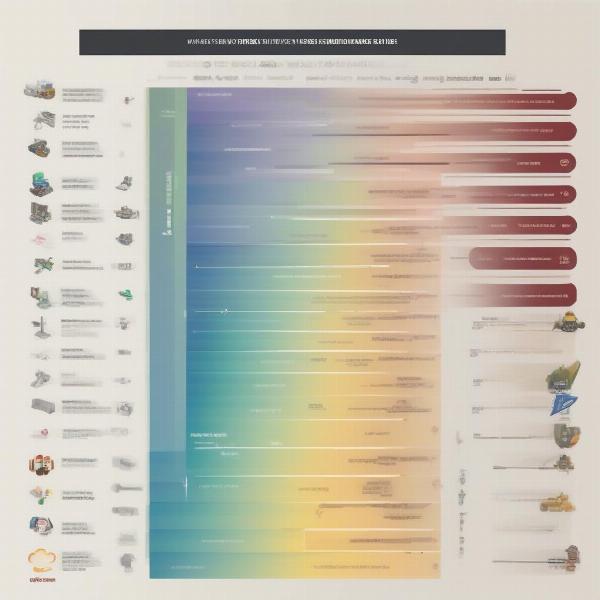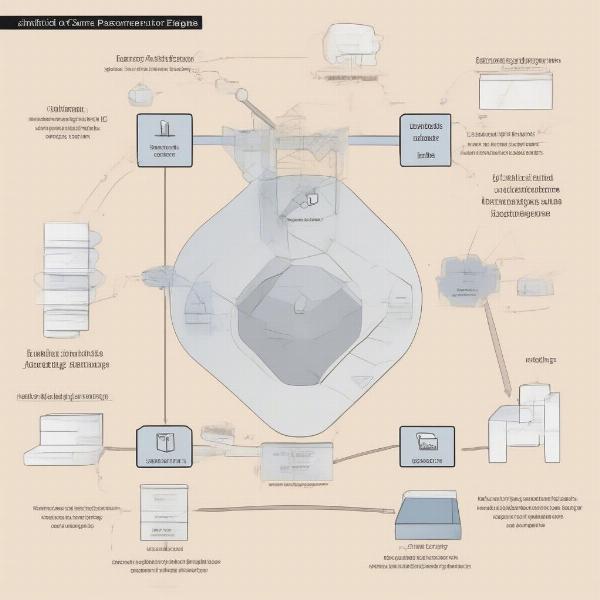Welcome to supremeduelist.blog, where we dissect the intricate world of gaming. Today, we’re diving deep into the realm of game development, specifically exploring the Best Javascript Game Engine options available. For aspiring game developers and seasoned coders alike, selecting the right engine is crucial for bringing your visions to life. This comprehensive guide will break down your choices, helping you make an informed decision.
The JavaScript ecosystem has exploded with powerful tools that make game creation more accessible than ever. From 2D platformers to complex browser-based strategy games, these engines offer everything you need to craft engaging experiences. This article will not only highlight the top contenders but also discuss what makes each one unique, focusing on ease of use, features, and community support, all to make your journey into JavaScript game development a success.
What is a JavaScript Game Engine?
A JavaScript game engine is a software framework designed to simplify and accelerate the process of creating games using JavaScript. It provides a structured environment that handles the low-level details like rendering, physics, and input handling. This allows developers to focus more on game logic, design, and overall player experience. Using a JavaScript game engine can significantly reduce development time and ensure cross-platform compatibility for web-based games. Before diving in, you may want to explore more about the best open source game engine for an even wider view of your options.
Why Use a JavaScript Game Engine?
There are several compelling reasons to choose a JavaScript game engine. First, they drastically reduce the amount of boilerplate code you need to write. Secondly, these engines provide robust tools and APIs that facilitate game creation. Moreover, using JavaScript for game development allows for seamless cross-platform deployment, making your game accessible on virtually any device with a browser. JavaScript also boasts a large and active community, which means plentiful resources and support for developers.
Top JavaScript Game Engines in 2024
Now, let’s get into the heart of the matter: the top JavaScript game engines available this year. Each engine comes with its unique features and caters to different development preferences.
Phaser
Phaser is one of the most popular JavaScript game engines and is widely regarded as a great option. It is a powerful, open-source, and free 2D game engine that supports both canvas and WebGL rendering. Phaser is known for its simplicity and ease of use, making it an excellent choice for beginners and seasoned developers alike. The engine’s vast library of pre-built components makes it quick to set up and start creating.
PlayCanvas
PlayCanvas is a comprehensive, cloud-based game development platform, perfect for both 2D and 3D games. What sets PlayCanvas apart is its web-based editor, allowing teams to collaborate seamlessly on projects. Its robust rendering engine and intuitive interface make it ideal for creating visually appealing games and interactive experiences. The platform also boasts a user-friendly asset management system, which makes organizing and accessing resources straightforward.
 comparing popular javascript game engines
comparing popular javascript game engines
PixiJS
PixiJS stands out for its superior rendering performance and flexibility. It’s primarily a 2D rendering engine but is incredibly powerful. Many developers choose PixiJS as their rendering engine and combine it with other frameworks or build on top of it to develop their games. Its WebGL renderer can handle intricate graphics and complex animations efficiently. PixiJS’s modularity makes it a great fit for various project scopes and skill levels.
Babylon.js
Babylon.js is the go-to engine for 3D game development in JavaScript. With its feature-rich API and excellent rendering capabilities, it’s possible to craft stunning 3D worlds directly in the browser. Babylon.js offers a wide variety of tools for creating and animating complex scenes and managing sophisticated physics. This engine is particularly popular for those aiming to create graphically demanding experiences, like 3D adventure or simulation games.
MelonJS
MelonJS is a lightweight and robust 2D JavaScript game engine that focuses on simplicity and ease of learning. It’s designed to be fast and efficient and works well with mobile and desktop browsers. MelonJS offers a clear API and is suitable for creating 2D games like platformers, puzzles, and arcade classics. Its simplicity makes it easier for beginners to grasp the fundamentals of game development. Furthermore, if you’re delving into the realm of 2D development, you might also find the information on the best libraries for 2d game gave very beneficial.
Choosing the Right Engine for Your Project
Selecting the “best” JavaScript game engine really comes down to your specific project requirements and skill level. Here’s a breakdown to help you make the right choice:
For Beginners
If you’re new to game development, Phaser and MelonJS are excellent starting points. Their ease of use, extensive documentation, and strong community support make them ideal for learning the ropes. These engines will allow you to quickly start building games without needing extensive coding experience.
For 2D Games
Phaser and MelonJS offer robust options for 2D game development. Their mature feature sets and performance optimization make them the top choices for creating 2D platformers, RPGs, and arcade-style games. PixiJS, while primarily a renderer, provides a solid foundation when combined with your chosen framework.
For 3D Games
If your focus is on 3D development, Babylon.js is the standout choice. Its powerful rendering engine and comprehensive tools enable complex 3D game creation. PlayCanvas also offers good 3D capabilities, particularly for collaborative projects.
For Collaborative Projects
PlayCanvas, with its web-based editor, is the best option for teams working together. The platform’s collaboration features allow multiple developers to work concurrently, which speeds up development.
For Performance Focus
PixiJS offers top-notch rendering performance, making it the choice for graphics-intensive projects. Babylon.js also performs excellently in 3D game environments.
 javascript game engine architecture
javascript game engine architecture
How Do JavaScript Game Engines Improve Development Workflow?
JavaScript game engines significantly streamline the game development workflow by providing ready-made components and features. These pre-built elements mean less coding and more time dedicated to designing the game. The engine provides a consistent framework and ensures that the code runs smoothly across different platforms. This enhances the efficiency of the entire game development cycle, saving both time and effort.
What Are the Common Features of JavaScript Game Engines?
While each engine may have its unique strengths, most JavaScript game engines share a common set of features:
- Rendering: Handling the display of graphics on the screen.
- Physics: Simulating interactions of game objects.
- Input: Managing player input from the keyboard, mouse, or touchscreen.
- Audio: Playing sound effects and background music.
- Asset Management: Managing and loading game resources like images, sounds, and animations.
- Animation Tools: Providing mechanisms for creating smooth animations.
“Choosing the right JavaScript game engine is like selecting the right tool for the job,” says Anya Sharma, a lead developer and game design consultant. “Evaluate your specific needs, consider the project’s scope, and pick the tool that aligns perfectly with your goals. It’s about working smart, not just hard.”
Frequently Asked Questions About JavaScript Game Engines
Q: Is it hard to learn JavaScript game development?
A: Not necessarily. With a good game engine and some basic knowledge of JavaScript, you can begin creating games relatively quickly. The learning curve varies with the complexity of your game but can be surprisingly gentle.
Q: Can I make real, marketable games using JavaScript?
A: Absolutely. Many successful web-based games have been developed using JavaScript game engines, showing their effectiveness and power in the market.
Q: Are JavaScript game engines suitable for mobile development?
A: Yes, many JavaScript game engines are designed to work seamlessly across various platforms, including mobile browsers. This enables developers to deploy their games on both desktop and mobile devices with ease.
Q: Which JavaScript engine is best for 3D games?
A: Babylon.js is the go-to engine for 3D games, with its fantastic graphics, strong rendering capabilities, and a vast collection of tools tailored for 3D development.
Q: Can I use multiple JavaScript game engines for one game?
A: While theoretically possible, it’s not recommended. It is more efficient to choose one engine that aligns with your requirements and stick with it for the sake of project management and consistent performance.
“Focus on the joy of creation,” says Ben Carter, a veteran game designer and educator, “The technology is just a vehicle for your imagination. Dive in and enjoy the process of making games and bringing those worlds to life.”
Conclusion
Choosing the best JavaScript game engine is a pivotal step in your game development journey. Each engine we’ve discussed—Phaser, PlayCanvas, PixiJS, Babylon.js, and MelonJS—has its unique strengths, catering to different project needs and skill levels. Before embarking on your creative journey, think about the type of game you aim to develop, your coding proficiency, and the project’s scale. By picking the right tool, you are not just building a game; you are crafting an experience. Here at supremeduelist.blog, we are committed to offering you the best resources and guidance, so you can make the most informed decisions on your game development journey.
Now that you are armed with this comprehensive guide, it’s time to explore the various tools and find the perfect match for your project. Start building, and don’t forget to share your awesome creations! Happy game development!
Leave a Reply